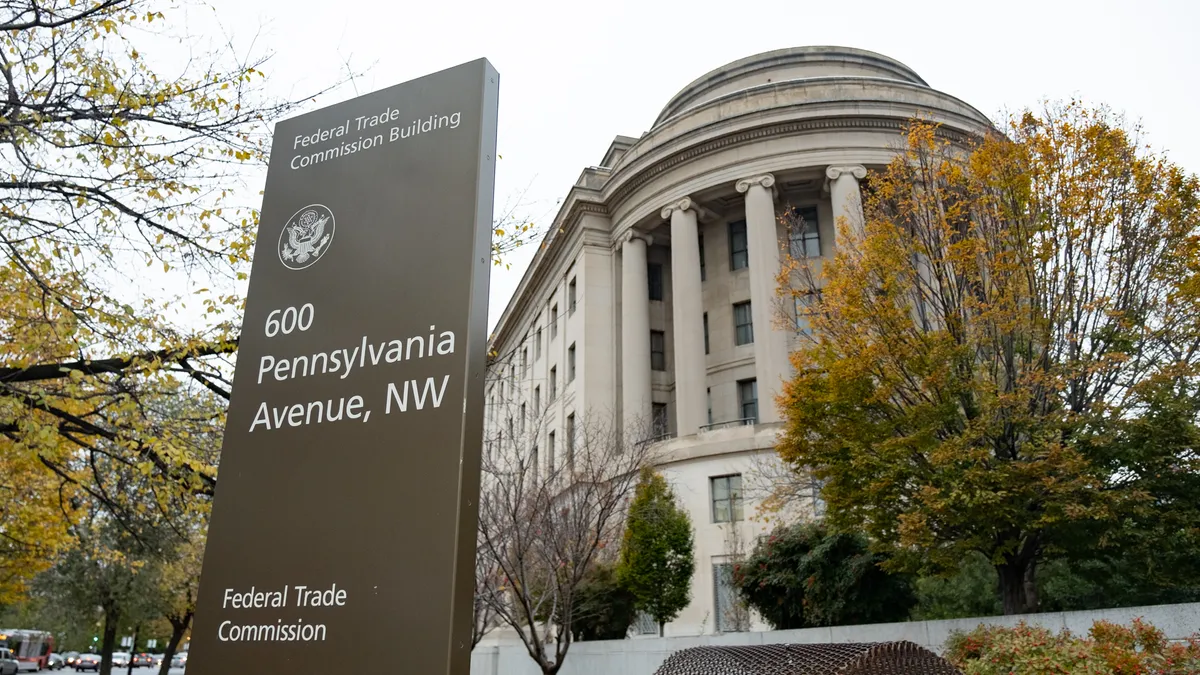UPDATE: Dec. 19, 2019: Illumina announced Wednesday it will extend the end time of its merger plan with PacBio to March 31, 2020. Illumina will make two cash payments of $6 million to PacBio by Jan. 2, 2020, and March 2, 2020, and an additional $22 million by Feb. 3, 2020.
Under certain conditions, if the merger is terminated, PacBio would need to repay the money, according to Illumina.
Dive Brief:
- The Federal Trade Commission announced Tuesday it filed a complaint to block Illumina's $1.2 billion acquisition of Pacific Biosciences of California in a 5-0 vote. The U.S. regulator deemed the proposed deal illegal due to its potential to substantially lessen next-generation DNA sequencing systems market competition.
- The complaint argues Illumina is attempting to maintain an NGS monopoly "by extinguishing PacBio as a nascent competitive threat." Regulators noted PacBio is one of three other NGS companies in the United States, and that it recently started to convince Illumina customers to switch to its platform for certain uses.
- The FTC action comes after the United Kingdom's Competition and Markets Authority in October provisionally determined the deal would result in less competition, leading to reduced choice, increased prices, deterioration in quality and service, and a loss of innovation.
Dive Insight:
The FTC argues Illumina's short-read sequencing technology and PacBio's long-read sequencing technology are poised to compete in the future, and that allowing the two firms to merge would reduce incentives for new products to be developed.
"PacBio has made significant technological advancements in recent years that have increased the accuracy and overall throughput of its systems, while lowering the cost," FTC said. "As a result, PacBio is a closer alternative to Illumina than ever before."
The complaint notes certain customers have already moved some business from Illumina to PacBio and argues the company is "poised to take increasing sequencing volume from Illumina in the future."
"When a monopolist buys a potential rival, it can harm competition," FTC Bureau of Competition deputy director Gail Levine said in a statement. "These deals help monopolists maintain power. That's why we're challenging this acquisition."
Illumina spokesperson Eric Endicott told MedTech Dive in an email the company believes its acquisition will benefit both industry and customers.
"We strongly disagree with the FTC's decision and will continue to work through the regulatory approval process as we consider next steps," Endicott said.
If necessary, FTC said its staff can seek a preliminary injunction and temporary restraining order to halt the deal from moving forward while its complaint plays out in a U.S. administrative trial set to start Aug. 18, 2020.
Illumina CFO Sam Samad told investors earlier this month the company remains focused on getting the deal approved despite the British regulator's provisional finding, but is preparing alternatives if the merger is blocked.
"We still have our own organic long-read program that we're investing in that we have certain R&D dollars that are being invested in and developing, so that's still an option," Samad said. "Beyond that, we could look at other potential options in terms of distribution options or other things like that."
In mid-November, Illumina filed a response prepared by Covington & Burling to the CMA, arguing the provisional report "failed to establish that Illumina's short read systems and PacBio's native long read systems compete."
"Contrary to the CMA's assertion that certain customers suggested that growth of native long read sequencing would be ‘at the expense' of short read sequencing, those customers actually indicated that they believed that native long read and short read sequencing would remain suited to different uses," Illumina wrote.
On Nov. 19, Illumina proposed a remedy to the CMA concerns, suggesting granting a royalty-free license for pre-closing patents and patent applications to third-parties interested in utilizing them for "single molecule, native long read sequencing systems and associated sequencing chemistries." It also floated giving up exclusive rights to related in-licensed patents held at the closing date of the deal.
"While the Parties reject the provisional [substantial lessening of competition] findings, the proposed commitment will ensure that any potential SLC is eliminated and that the important [relevant customer benefits] are maintained," it wrote.












